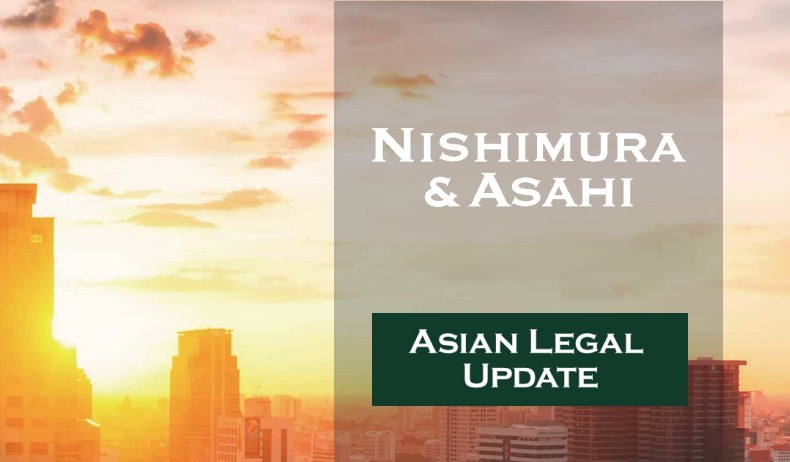Authors: Daisuke Maeshiro (Nishimura & Asahi) and Wan May Leong (WM Leong & Co)
MALAYSIA
1. Passing of The Insolvency (Amendment) Bill 2023
The Insolvency (Amendment) Bill 2023 (“Bill”) was passed in the House of Representatives on 24 May 2023 and will be tabled before the Senate. The effective date of the Bill has not been appointed at the time of writing.
In line with the Government’s intention to preserve the welfare of bankrupts, the Bill seeks to provide a more effective bankruptcy administration and discharge process in Malaysia. Some of the proposed amendments introduced by the Bill are summarized as follows:
- Inclusion of categories of bankrupt individuals to be discharged
The amendments introduced 2 new categories of bankrupt individuals, who may be qualify for a discharge of bankruptcy without objection from the creditors:
(a) a bankrupt who is incapable of managing himself and his affairs due to any mental disorder, as certified by a psychiatrist from any government hospital; and
(b) a bankrupt aged 70 years and above and in the opinion of the Director General of Insolvency (“DGI”), is incapable of contributing to the administration of his estate. - Easing of the early automatic discharge provisions
(a) The amendments enable bankrupt individuals to be automatically discharged from bankruptcy after the expiration of 3 years from the date of submission of the bankrupt’s statement of affairs, provided that: (1) the bankrupt has paid the sum of money determined by the DGI, for the purpose of the administration of the bankrupt’s estate, having regard to the financial ability of the bankrupt; and (2) the bankrupt has complied with the requirement to render an account of moneys and property to DGI.
(b) As a protective measure, the amendments empower the DGI to suspend the automatic discharge of a bankrupt for a period of not exceeding 2 years if the bankrupt fails to comply with duties and obligations under the Insolvency Act 1967. - Use of electronic communication during bankruptcy administration
The amendments allow: (a) the use of remote communication technology (e.g. live video link) for the conduct of creditors’ meetings, if it is convenient for the majority of the creditors in the opinion of the DGI; and (b) the use of electronic communications for the services of notices and documents under Insolvency Act 1967, provided the recipient has given consent for the use of electronic communications.
2. Transfer of Listing Framework from LEAP Market to ACEMarket
Bursa Malaysia Securities Berhad (“Bursa”) has issued amendments to the transfer of listing framework from LEAP Market to ACE Market (“LEAP Market Transfer Framework”). LEAP Market is a qualified market accessible only to sophisticated investors, being accredited investors, high net-worth entities and individuals as prescribed under the Capital Market and Services Act 2007. Therefore, a transfer from LEAP Market to ACE Market, which is open to the public and retail investors, will provide access to a larger pool of investors.
Under the LEAP Market Transfer Framework which came into effect on 1 April 2023, a company listed on LEAP Market:
(i) must be listed for at least 2 years;
(ii) must demonstrate a clear and transparent price discovery mechanism in place, to show fairness and reasonableness of its issue price pursuant to its transfer to the ACE Market;
(iii) can opt to provide all the shareholders with an exit offer that complies with the Take-Overs and
Mergers Code or any other alternative exit mechanism, which is equitable to the shareholders; and (iv) will only be delisted from LEAP Market upon successful completion of the transfer and listing on ACE Market, unlike the previous regime where a company listed on LEAP Market must be delisted from LEAP Market to facilitate its listing on ACE Market.

